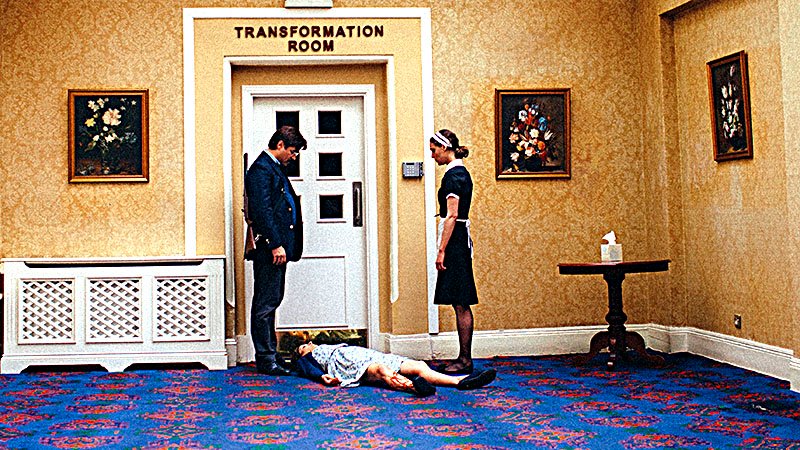
Colin Farrell and Rachel Weisz in "The Lobster" (2015)
Synopsis
How many times would you have to watch The Lobster before it begins to make sense to you? I watched it once, and frankly that was enough to extinguish any enthusiasm for this much-awarded curiosity. Is this taking place in a dystopian future? A parallel universe? An absurdist nightmare? Does it matter?
The premise is intriguing. In this dystopian parallel absurdist universe, it is illegal to be single. So when his wife deserts him, David (Colin Farrell) is shipped off to a hotel in the woods, where he has 45 days to mingle with other suddenly single people and find the partner who is the perfect fit. And if he fails? He’ll be turned into an animal. And what animal does he prefer? A lobster.
Don’t worry. You won’t hear much about lobsters after that.
Skip It
David’s romantic quest is not helped along by the fact he is a loner and a bit of a dim bulb. He tries to make guy friends, then girl friends. After his first crush betrays him, he flees into the woods. And, though you wouldn’t think it possible, things get even weirder when he meets and clicks with a character known only as the Short-Sighted Woman (Rachel Weisz).
Now, I’m not so entirely dense that I can’t see a bleak commentary on romantic love lies deep within the recesses of this darkly comic tale. I’m just dense enough not to enjoy unpacking the implications of the dissembling and self-delusions that make every character unappealing.
I can appreciate why movie nerds love the original premise, the fine performances by Farrell and Weiz, and the cold and unsettling tone. There is much to discuss (or argue about) throughout the episodic action, right up to the final gut-wrenching image. If originality and thought-provoking metaphors were all that matters, The Lobster would be worth recommending. But you’ll need multiple viewings to plumb the depths of what it has to say, and I don’t think you’d feel the insights are worth the effort.